Translation: Andrea Horváth Kávai
„In this time, when our friends and neighbours are dying, we Ukrainians understand and experience what truly matters, what is true, and what it means to care for each other. Perhaps this is our tragic mission: to be the ones through whom others will understand how important these things are and what it means to remain human.”
-elaborates Dmitro, the gray-haired, Ukrainian former philosophy professor at his house in Berehove. He is sitting at a big dining table, surrounded by families who had fled from Kyiv and whom he had taken in for a day or two.
On day 6 of the war, we went to the Transcarpathian town of Berehove. Due to the proximity of the border, approximately half of the town’s 23 thousand inhabitants left for Hungary at the very beginning of the war. As we have reported a number of times, most of them went to stay with relatives and friends in Hungary or Western Europe.
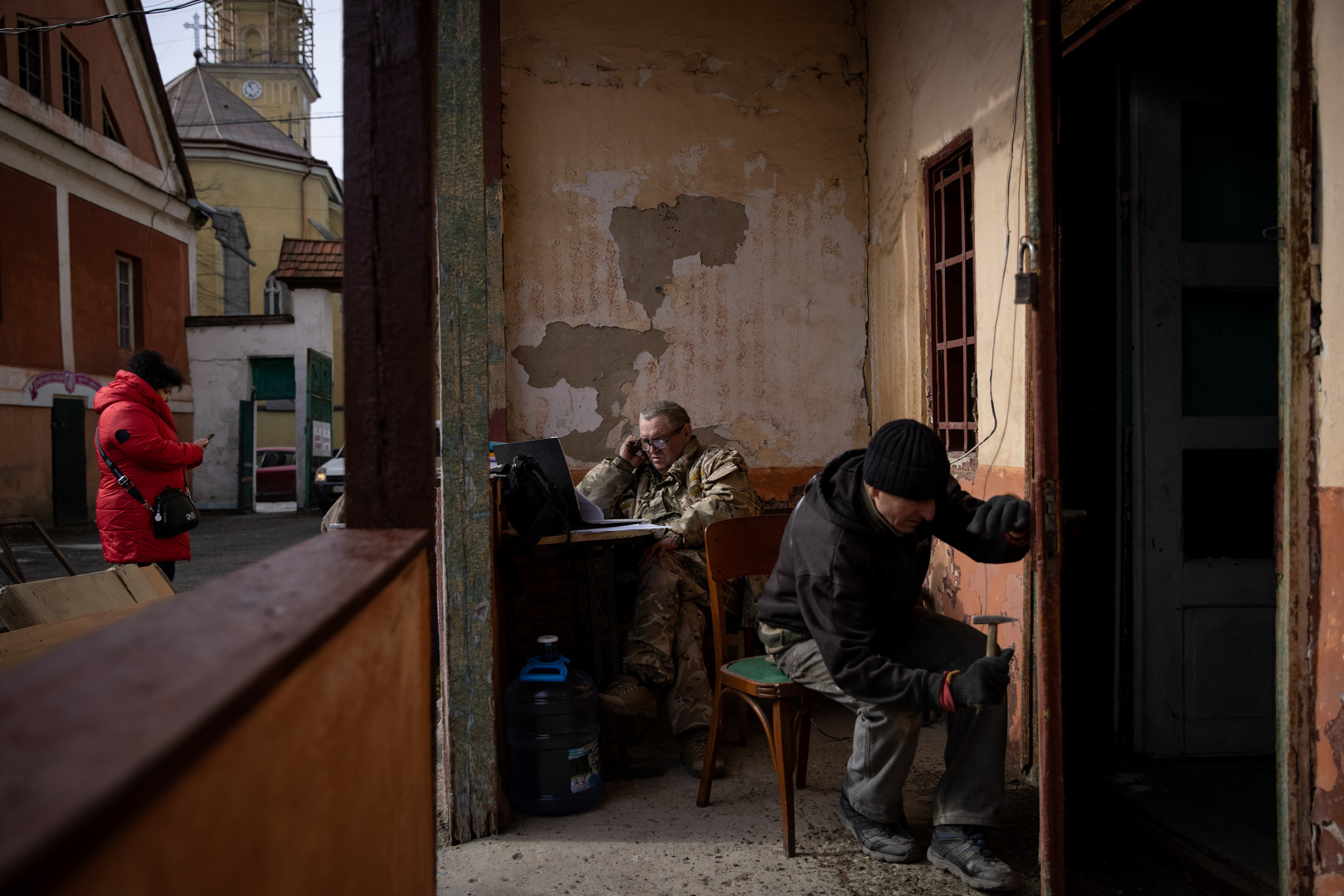
Meanwhile, Transcarpathia became one of the places where refugees from Kyiv and the interior have been fleeing. They are arriving continually. These are the people who don’t want to, or are not able to leave the country, but are trying to keep their family as far from the fighting as possible. All the hotels and bed and breakfasts were filled long ago, and the town is now preparing beds, food and clothing for refugees in multiple locations.
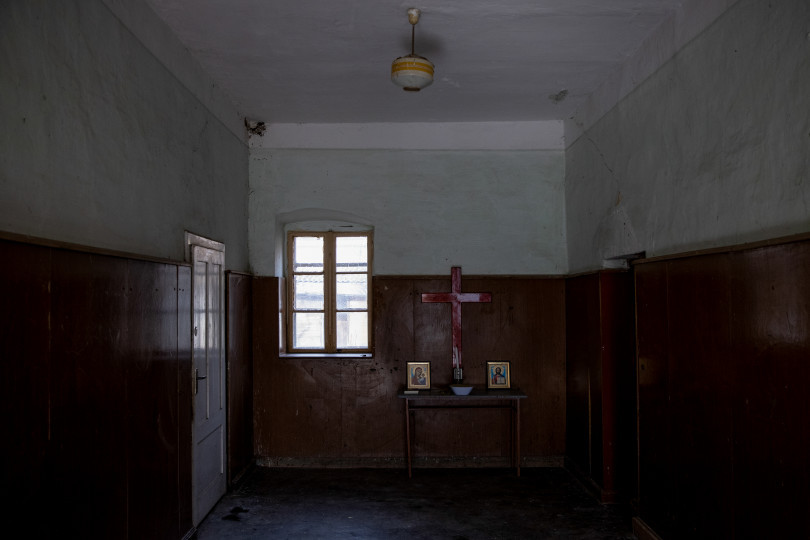
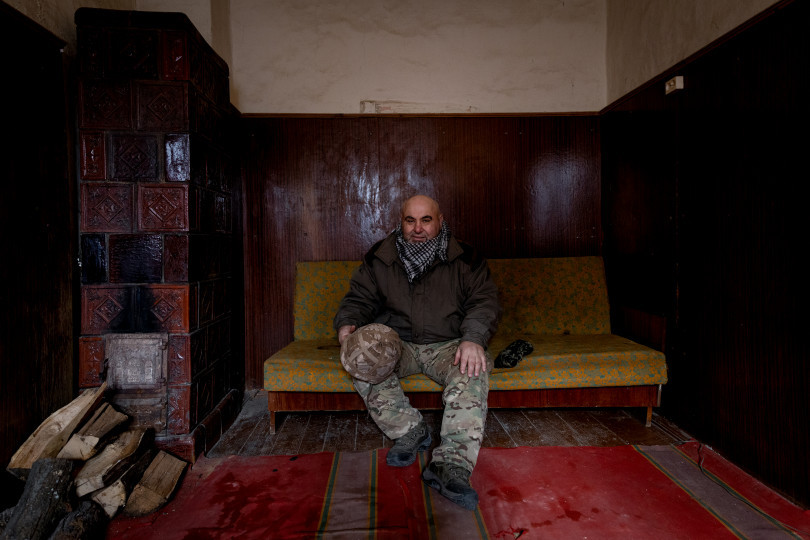
At the time of our visit, in one such location volunteers were preparing an old, out of use school building for receiving refugees and collecting donations. Three Ukrainian youngsters greeted us at the gate. They said they had come to the currently safe Transcarpathia from Kyiv, but they wanted to help in some way. One of them was trying to prepare a former classroom for setting up beds when we arrived.
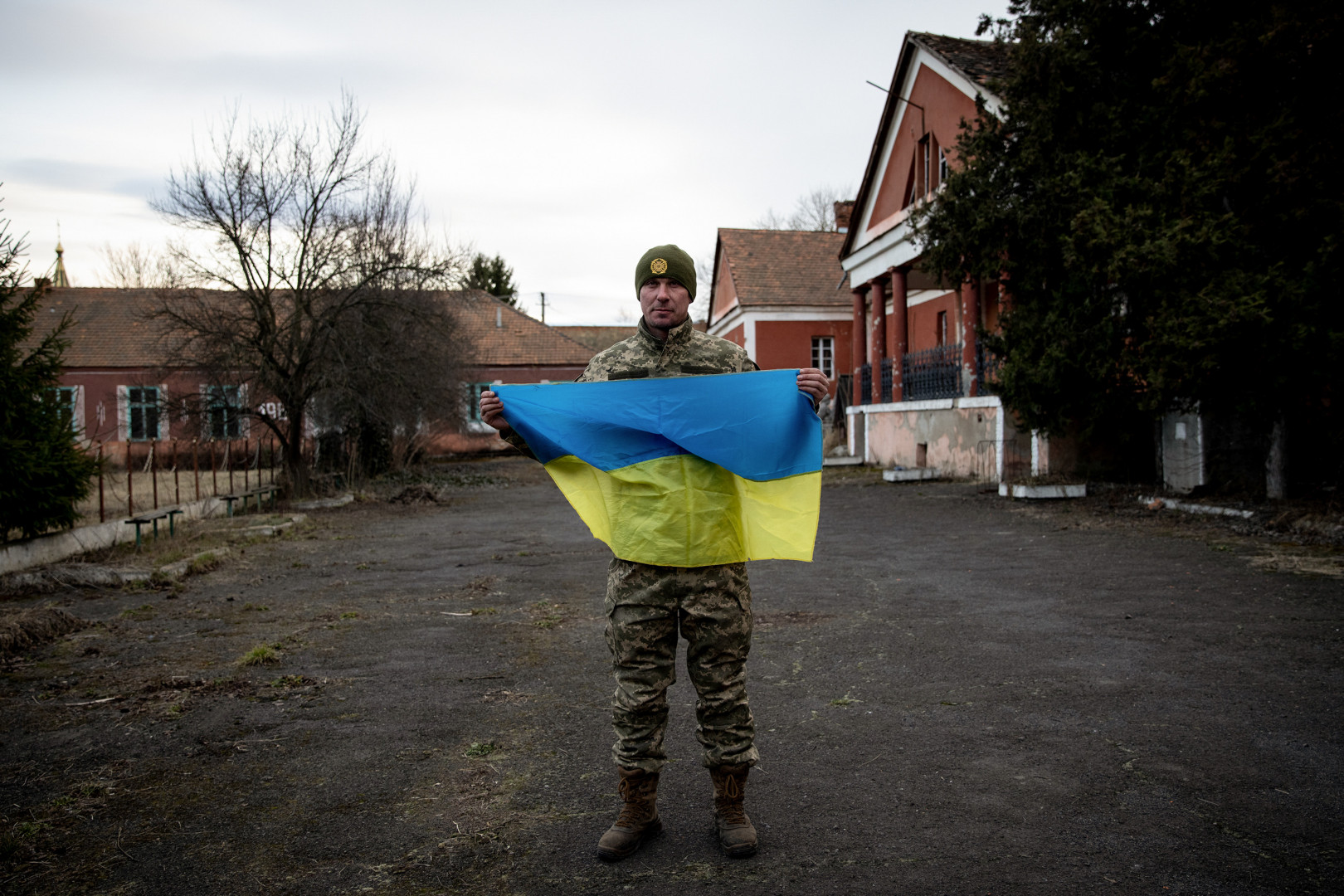
This is where we met Viktor with whom our colleague, Gergely Nyilas had recently done an interview about the sea of trash floating down the river Tisza. He was the one who established a waste processing center here. Today, he serves as a civilian reservist and helps where he can.
„Where would we come back to? If we were to leave now, there might not be anywhere to come back to.”
– he says, when I ask him why it didn’t occur to him to leave Ukraine when the war broke out.
He says that many share his opinion. Some have gone from Transcarpathia to Kyiv, because if Kyiv falls, the war will reach Transcarpathia very quickly.
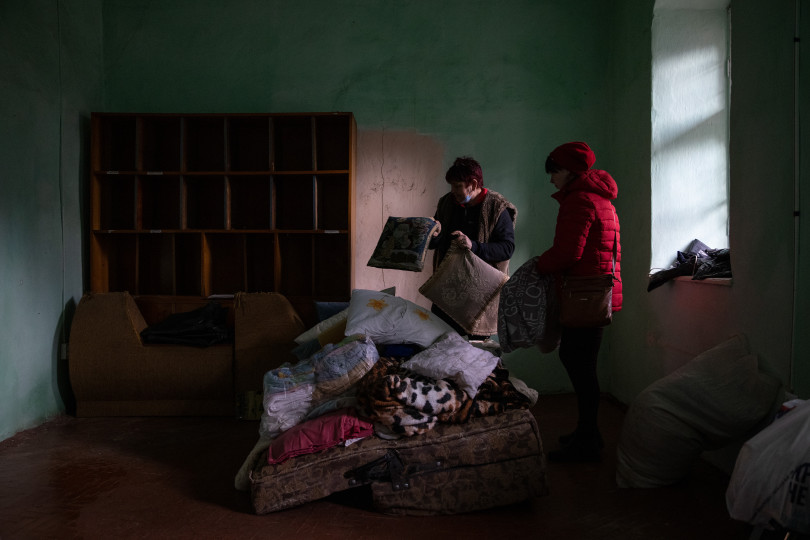
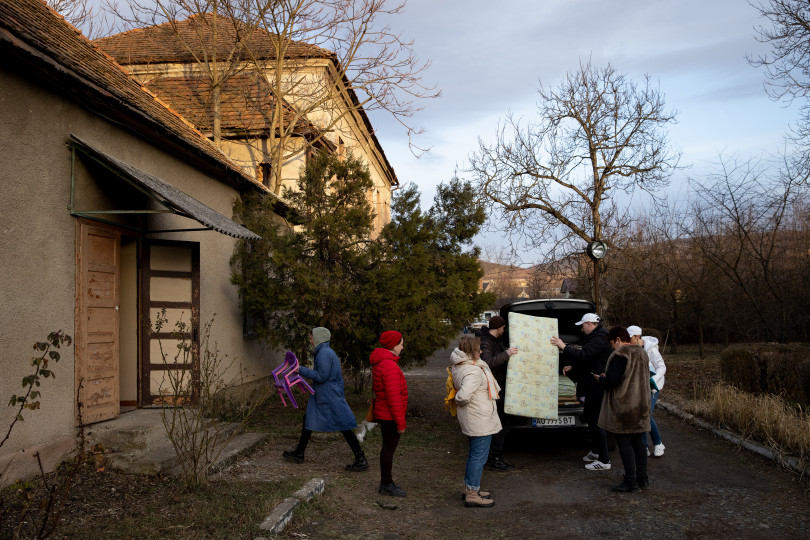
A young girl who is coordinating the volunteers’ work told us that for the time being most refugees are arriving in Uzhhorod, as that is where the trains for Hungary leave from. But to be safe, preparations are made everywhere for receiving refugees – who are arriving continuously. She also knows people who had gone to where the fighting is, as that is where they want to help. They did not go to fight, they want to help with provision and organizing the food supply.
We were told that the first ones to come were the better-off families. They filled up the hotels and bed and breakfasts, and then the average people started arriving. They are mostly staying in apartments or rooms offered by locals.
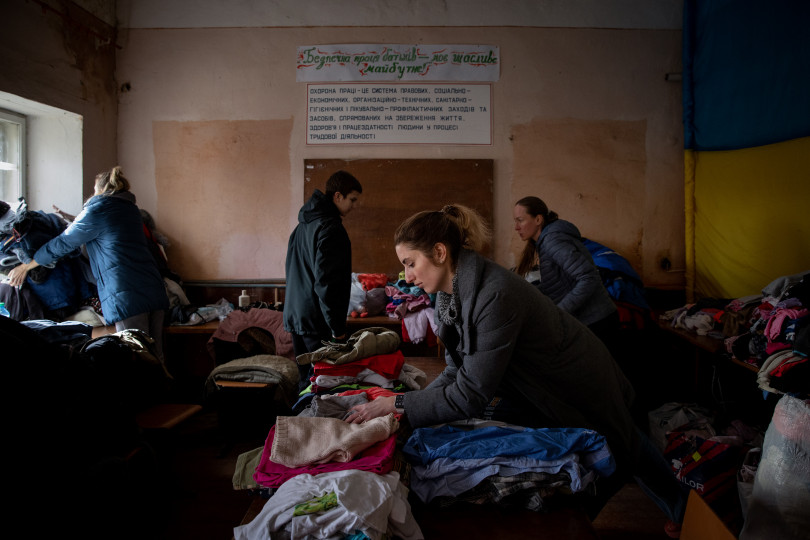
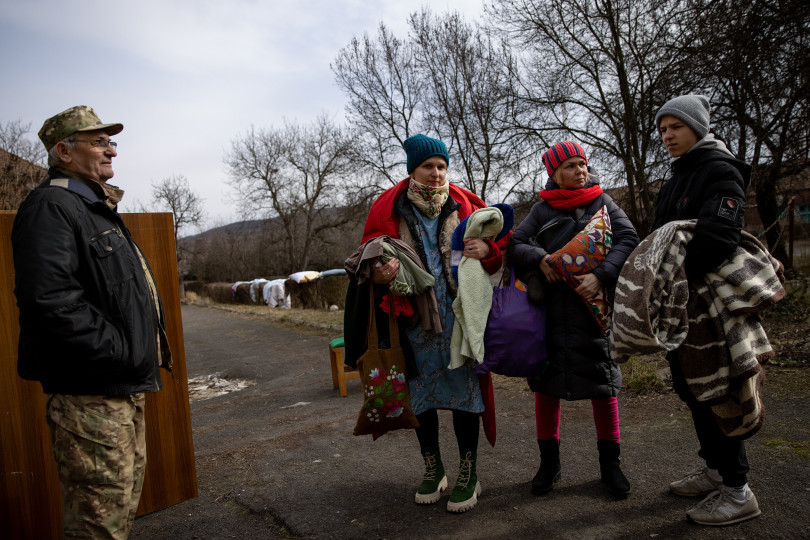
We encountered one such family in the school yard. They had come for blankets and were going back to Dmitro’s house. We joined them to find out more about their story and the story of the family they were staying with.
Although we had to make a detour to look for accomodation ourselves, they insisted that we join them for dinner. When we arrived, we ended up listening to an almost psychotherapeutic conversation where – under the shadow of war, those fleeing the fighting took turns sharing their fears, opinions, as well as something uplifting or beautiful they had witnessed or learned in these terrible days.
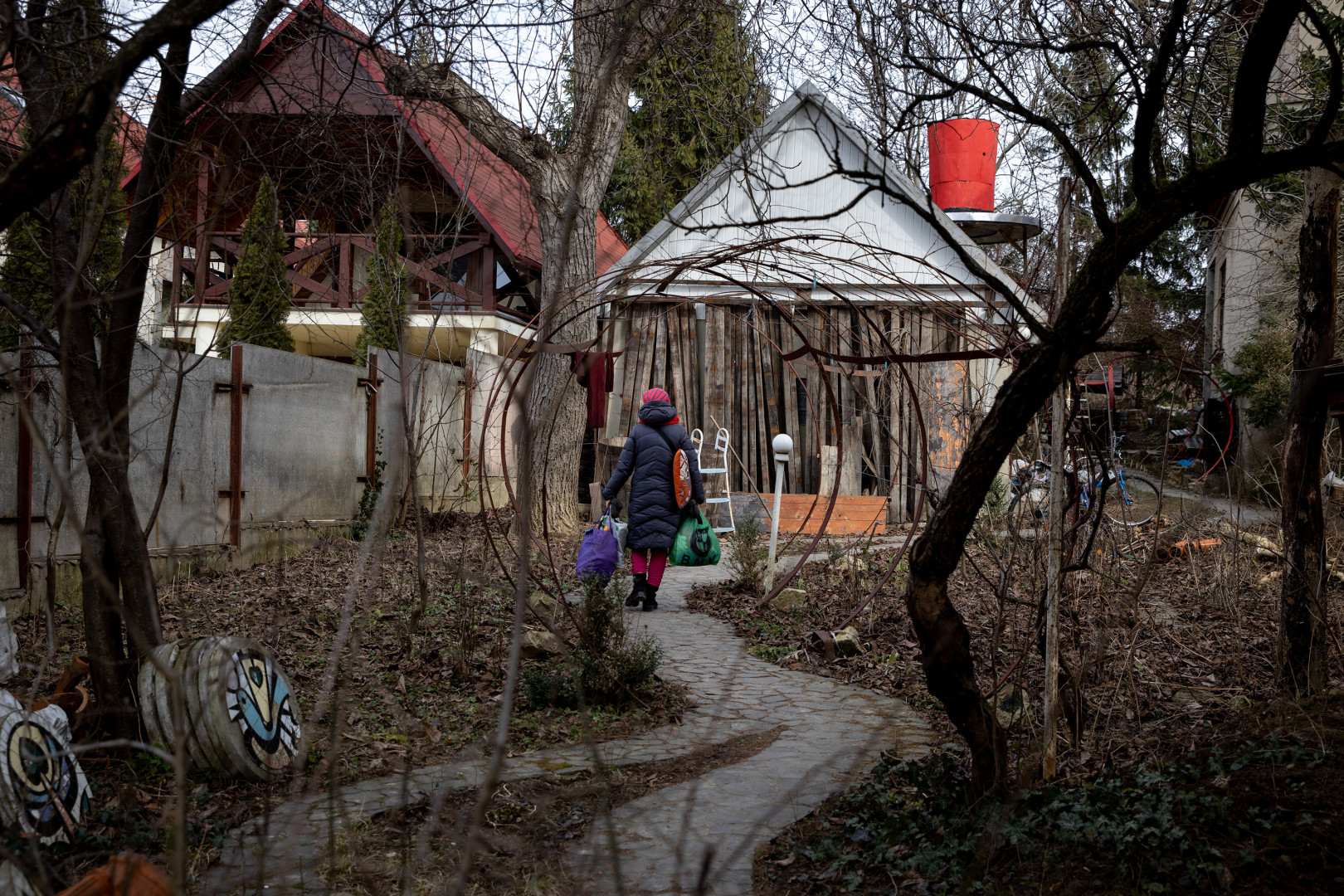
Dmitro used to teach philosophy in Kyiv. In 2008 he gave that up and bought an old house – built in 1932 – in Berehove and began making his ideas and childhood dreams a reality. In the end, the building became a totally surreal house, where in the old part, which is now the living room, they sometimes hold theatre performances or concerts, and in the add-on he created an entire enchanted castle complete with climbing ropes, secret stairs, lofts, and secret bedrooms hidden behind bookshelves. It is here that he is accommodating 20 people – 4 families with lots of kids. Each family has their own room or area.
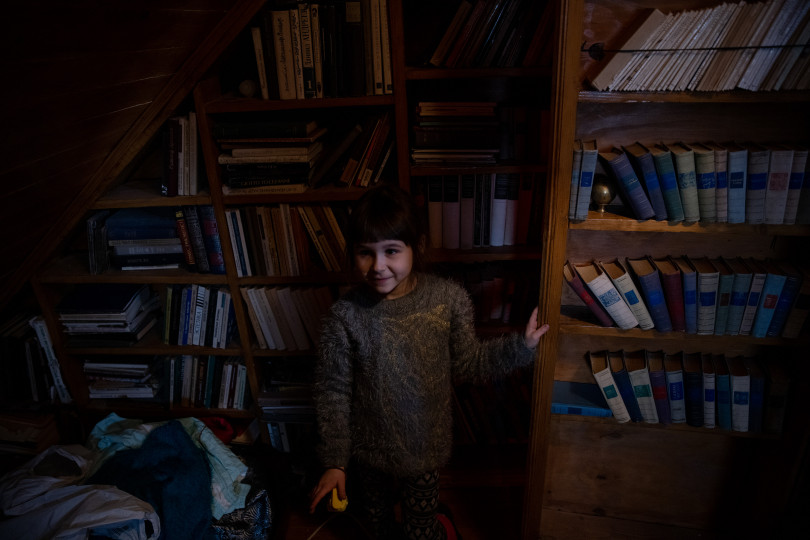
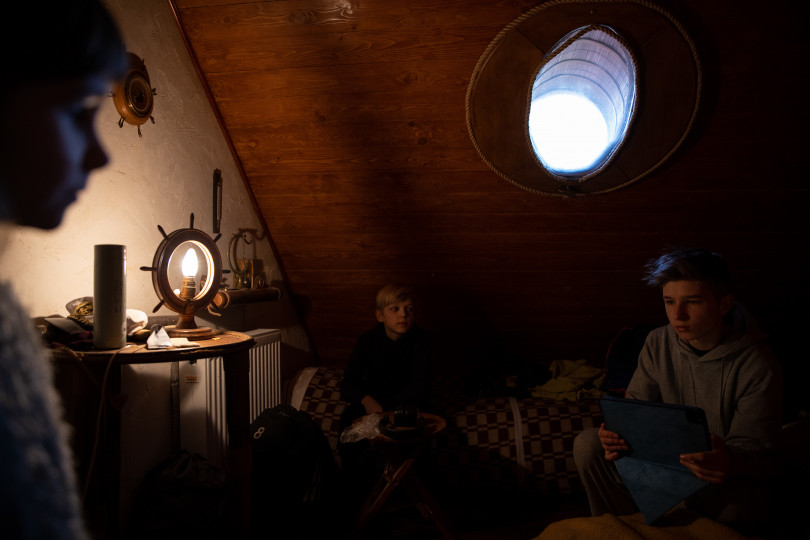
We met Juri who is caring for his ex-wife and two children: his son and daughter. He came from near Kyiv where he was working at an organic farm, although he was originally an economist. He hasn’t decided yet whether to go back to help, although even from here, he spends his days coordinating helpers on-line. He would have preferred for his ex-wife and kids to leave the country, but they did not want to leave Ukraine without him – this is why they are in Transcarpathia. Juri says that if the war were to reach this area, he will be ready to talk them into leaving the country. They would most likely go to Poland or Slovakia, mostly because of the similarity in languages.
Denis came by car from Kyiv with his wife and mother. They brought their three puppies and two parrots as well. They told us that when the war broke out, a friend messaged them to tell them that a nearby house is being shot at by the Russians. They thought the friend was joking. When they looked out the window, everything seemed calm – except for the fact that the traffic jam was in the opposite direction from the usual. As soon as they realized what was happening, they packed up and left for the calmer Transcarpathia.
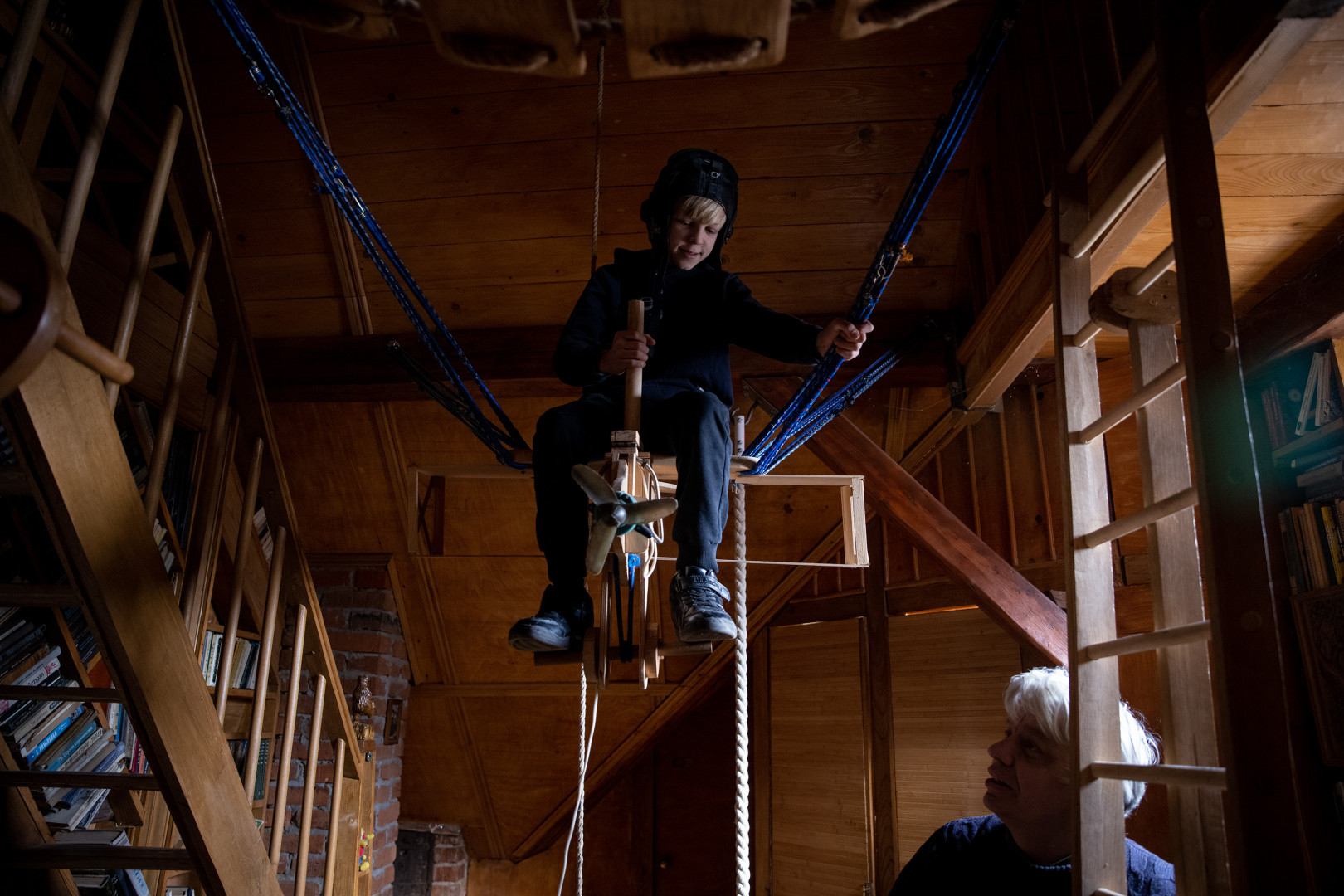
Denis’ wife, Lina said with tears in her eyes that they had given each other the parrots for Valentine’s day but the war broke out a few days later – and now, here they are in a house in Berehove with the parrots’ cage sitting on the table. Denis explained that according to the current law he is not allowed to leave the country, and his mother and wife don’t want to leave without him. So he has no idea what will happen, all he knows is that for the next few days they will remain here. Lina is a painter, and Denis even adds with a smile that perhaps she will even be inspired by their situation. In his opinion, this is the first time that everyone in the country is united: there are no two sides, nothing is interpreted in two ways, because everything is clear.
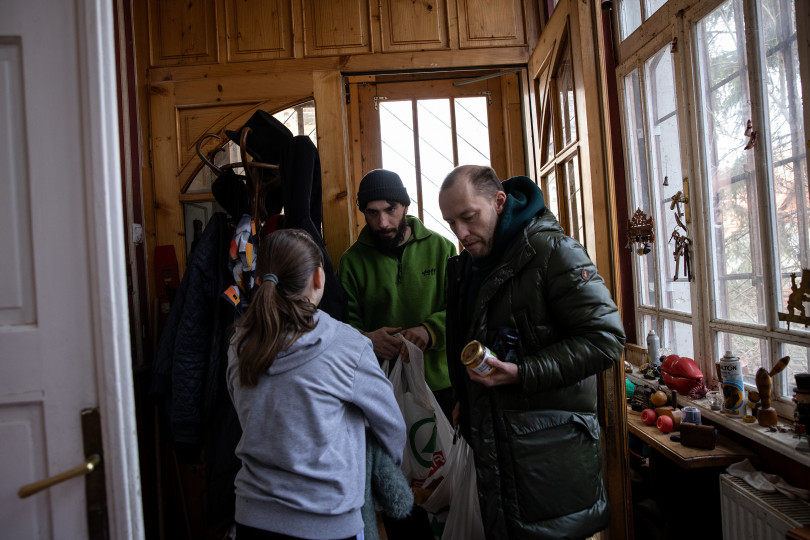
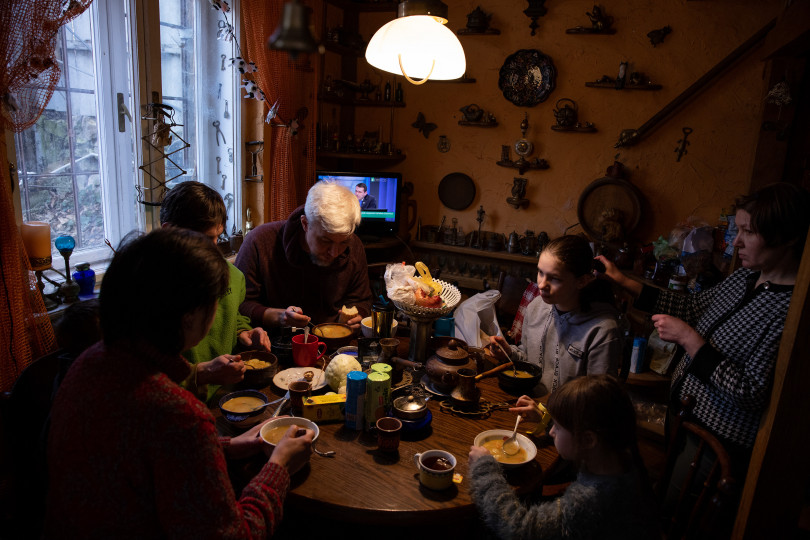
Viktor and Olga were there with their two sons, Olga’s mother and her husband, Miroslav, who is a Czech citizen. So if they were to leave the country, the plan is mostly to go to the Czech Republic. Olga and Victor are both employed. Victor works at a headhunter firm. It was on the second day of the war that they decided to leave the city. They set out towards the South, and after a few short stops made it to Berehove one day before we met them. They had also brought their cat.
Victor adds that things have been simplified for the men by forbidding them to leave the country. This is creating real drama in many families, including theirs. When I asked about their plans for the upcoming days, it was clear that this is something they are constantly discussing amongst themselves. Victor would naturally want his whole family to be safe, and would like them to go to the Czech Republic, but they don’t want to leave without him. Olga adds that she is simply incapable of imagining any sort of a temporary life abroad – without Victor.
There was one more couple. Dmitro used to work as a photographer and reporter, while his wife Hanna is a graphic artist. They came with their two sons and their friend, Aliona, who is also a graphic artist and painter. She came with her daughter, Gerda. Aliona told us that neither of her parents were willing to leave Kyiv. „My mother thinks that she can stop the rockets with her mind, and my father has a much younger girlfriend, and is so happy right now, that he doesn’t even care about the war.” – she said with a smile.
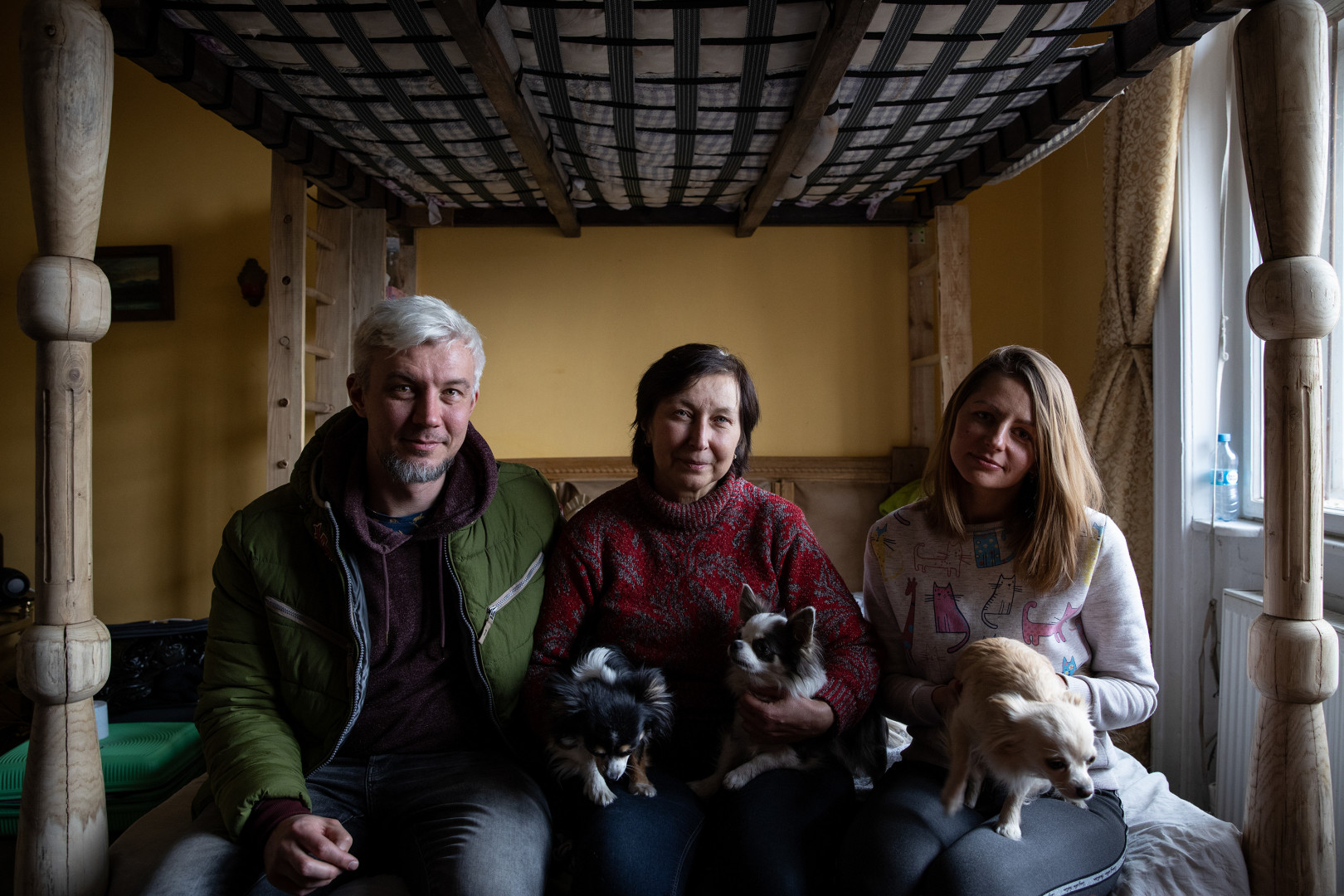
We could only speak with them briefly, as we also had to find accommodation for the night – which we knew would be a longer process, as all rooms have been reserved for days ahead. So we set out to make arrangements. But before we did so, Dmitro made us promise that in the evening we would go back for dinner and to talk more. In the end, we found a place to sleep: guest beds had been set up in a nearby hotel’s sauna – so we went back quickly.
A huge table had been set in the living room. All the plates and cups were brought out, even the last two bottles of beer from the cellar – since alcohol cannot be purchased in the country at war.
The dinner had a completely astonishing mood. While it was clear that they were all terrified of the war, and a few days prior had left their lives behind and could only bring a few bags, while they were doing their best to explain to the children what is going on, and while each family knew full well that the father cannot leave the country, so if things were to turn worse in this region as well, the family would be torn apart…they were all incredibly kind and supportive of each other, and everyone tried to approach the situation as positively as possible.
Like a professional psychotherapist, Dmitro asked everyone one by one to share their opinion about war, and what we can learn from all of this, as well as what they consider to be the most important. He included the children as well.
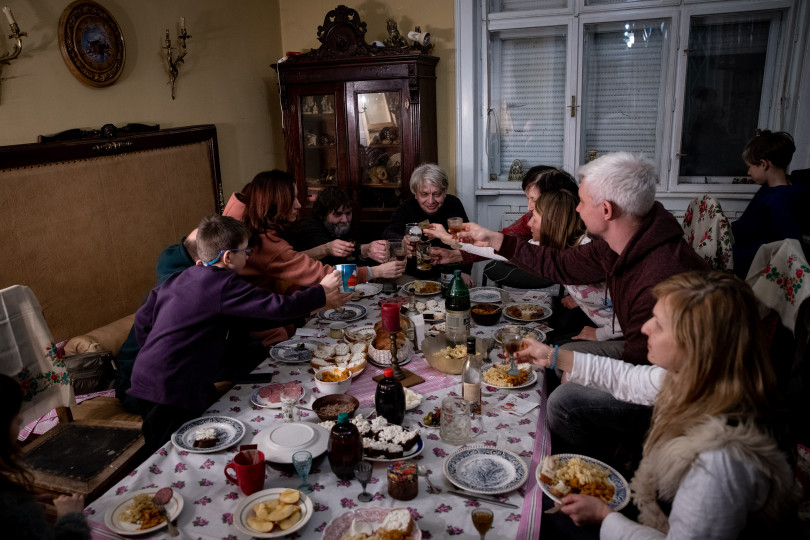
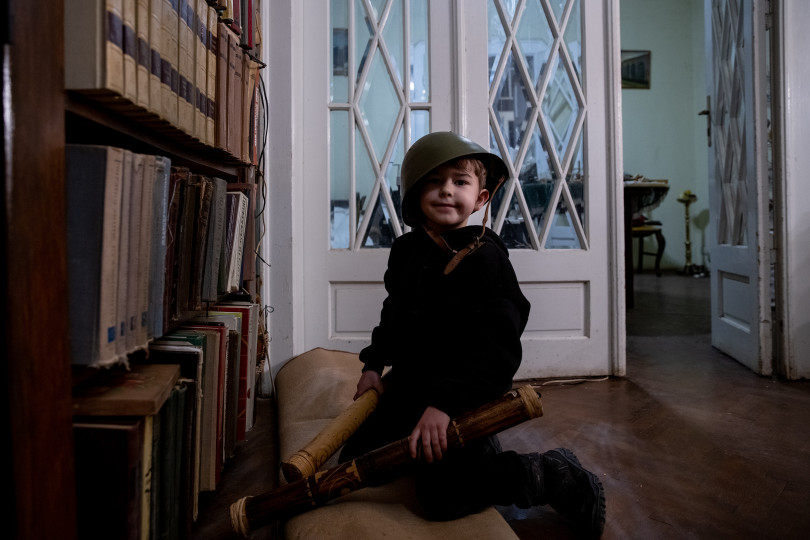
Afterwards Denism mentioned that before the war the Russians and those who took these things seriously talked about all kinds of things: they claimed that there weren’t any Russian soldiers there (in the breakaway regions), that it was all done by local insurgents. But now, all cards are on the table. He says the Russians are basically saying: „This is what we are, and we want to wipe you out!” He adds that in some ways this might really be the final battle, as there is no turning back any more.
He described how he had gotten severely ill a few years ago , and was between life and death for a few days in the hospital. Before that time, he was concerned about whether or not to buy a new iPhone, but then while he was in hospital and his parents came in and read for him from a book, he realized that nothing in life is more important than his family, his wife and all his loved ones.
„This war is providing an opportunity for everyone right now to realize just this. To take note of the value of life, of the value found in human relationships, in helping one another. I do hope that this realization will stay with us even after the war.”
– he said, and they toasted.
Juri said he doesn’t think this will be the last war. In his opinion people are making one mistake after another, and each problem continues to have a bigger effect: look at the pandemic, and now the war. He doesn’t expect much good in this respect in the future, but still, he thinks that this situation might teach people to face their mistakes and to realize that it is impossible to keep hiding from them. There is no space left for masks and egos. In his opinion, this is the only way to handle any future crisis.
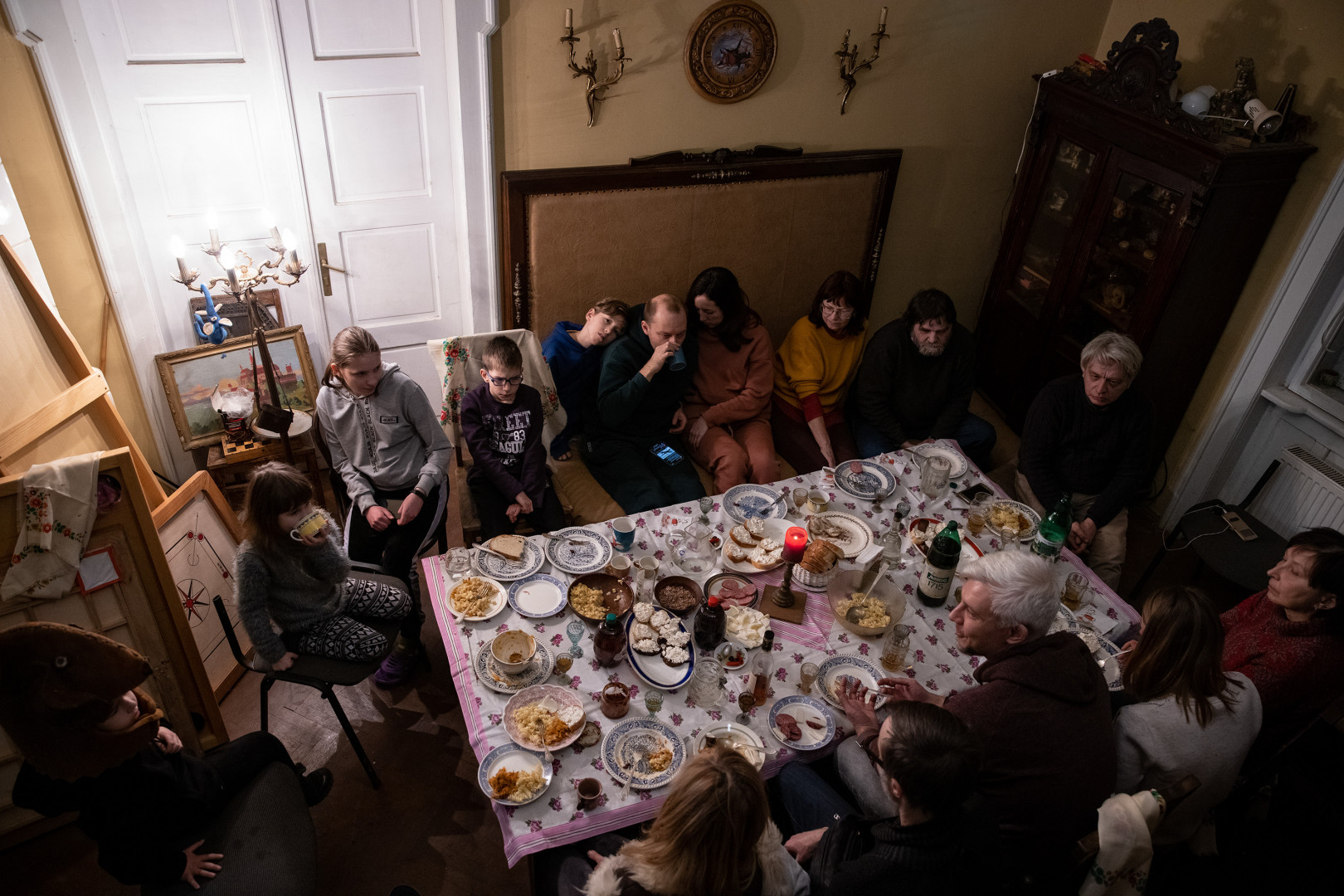
This is when Dmitro uttered his thoughts quoted at the beginning of the article:
„In this time, when our friends and neighbours are dying, we Ukrainians understand and experience what truly matters, what is true, and what it means to care for each other. Perhaps this is our tragic mission: to be the ones through whom others will understand how important these things are and what it means to remain human.”
He also brought up Russian television: he said that they cannot imagine what they mean when they say on there that this is all about Ukrainians killing Ukrainians, and Russia just came to help. Denis added that he had never been this proud to be Ukrainian before: „ I am sure that from now on, when I am abroad and they ask me where I am from, and I tell them ”Ukraine„, they will not say what they have usually said until now: ”Oh, is that in Russia?„
He said that the picture is clear: this is the battle of good versus evil. Layer by layer, the picture is becoming clearer, and everyone sees how important it is that we protect each other. In his opinion this is also made clear by the fact that for the first time in its history, the EU is also sending weapons, and even Germany – for the first time since the 2nd World War – has agreed to send weapons to a war zone.
The dinner slowly ended and the families started preparing to go to bed, so we said our goodbyes. On our way out, Miroslav, the older gentleman who is a Czech citizen said: ”Ukrainians are kind, welcoming, Christian people who will gladly share what they have with their guests. But one thing they don’t like is uninvited guests."